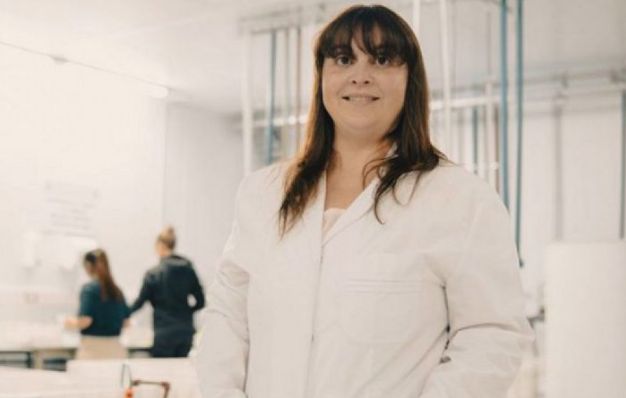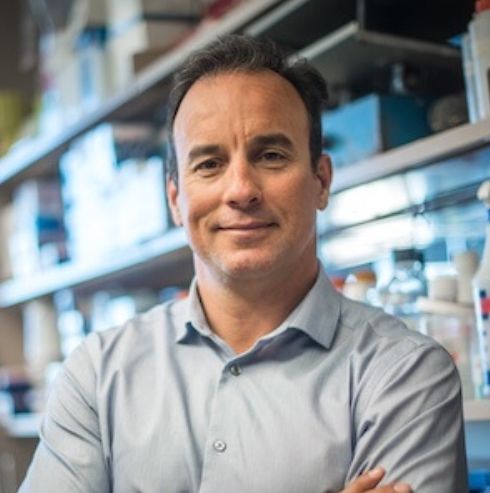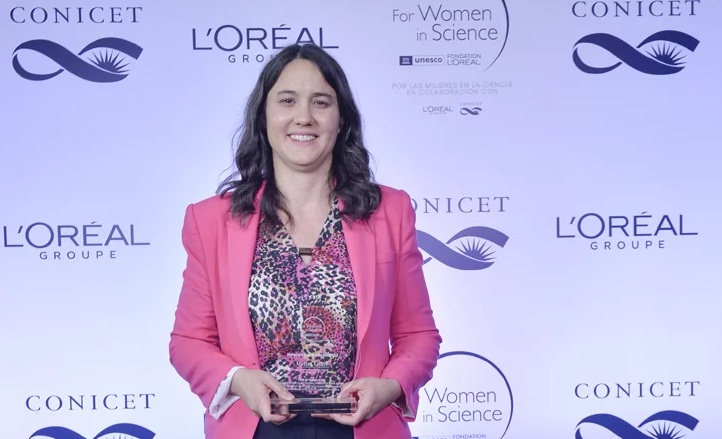Cynthia Tamara Rubilar Panasiuk is an Argentine researcher with a degree in Biological Sciences and a Ph.D. in Biology. Her work focuses on environmental conservation and sustainability, with extensive experience in the study of echinoderms—marine animals that include sea urchins.
Rubilar Panasiuk is a member of Argentina’s National Scientific and Technical Research Council (CONICET) and the Center for the Study of Marine Systems (CESIMAR). She is also affiliated with the Laboratory of Marine Organism Chemistry (LabQuiOM) at the Patagonian Institute of the Sea (IPAM).
Panasiuk and Science
Her primary field of expertise is marine agroecology and physiology applied to aquaculture. Agroecology explores the relationship between science and sustainable agriculture, and Panasiuk’s work focuses on the interactions within marine agroecosystems—especially sustainable sea urchin aquaculture.
She leads the Laboratory of Marine Organism Chemistry at IPAM, which explores the chemical composition of marine organisms with attention to their physiology and productivity. Panasiuk has actively participated in scientific events across Latin America and the Caribbean, addressing topics such as marine resources, echinoderms, sea urchins, and aquaculture.
Sea Urchins and COVID-19
One of Panasiuk’s most notable contributions is the development of “Echa Marine”, a dietary supplement derived from sea urchin extracts native to Chubut, Argentina. This supplement aims to improve the quality of life for individuals affected by the aftereffects of COVID-19.
The research involved analyzing sea urchins to identify molecular models capable of inhibiting the effects of COVID-19. The study found that specific pigments in Chubut sea urchins had inhibitory properties against the virus. These findings had both national and international impact.
Her research was presented at Harvard University and published in several scientific journals. Panasiuk is also the leader of the Arbacia Project and co-founder of Arbacia SRL, a biotechnology company focused on the cultivation of sea urchins for health-related applications.
Biotechnology and Sea Urchins
Arbacia SRL’s mission is to contribute to public health and the development of organic products that enhance the well-being of animals commonly consumed by humans. Panasiuk’s work reflects the principles of biotechnology—a scientific field that utilizes living cells for technological applications.
Her biotechnological research focuses on enabling sea urchins to produce substances with potential health benefits. This branch of food biotechnology aims to genetically optimize food sources—including animals—to improve product quality and safety for human consumption.
In addition to improving food sources, biotechnological research also explores topics such as environmental preservation, industrial pollution mitigation, plant modification, and resource extraction from marine ecosystems.
Marine biotechnology applied to microorganisms can be used to decontaminate polluted environments, develop new species, and generate resources for human use, whether for medical or nutritional purposes.
Scientific Leadership
Tamara Rubilar Panasiuk stands out as one of the key researchers working at the intersection of marine environments, biotechnology, health, and food production. Her groundbreaking research with sea urchins from Chubut—particularly in the context of COVID-19 recovery—exemplifies her commitment to applying marine biology for sustainable development.
Her contributions have had significant impact in both national and international scientific communities and represent a meaningful advance in marine biology, biochemistry, and environmental sustainability.




